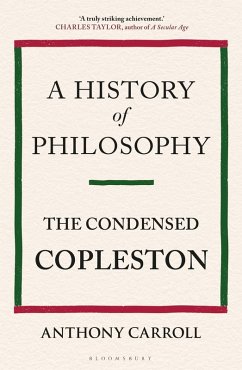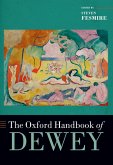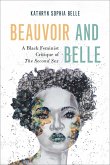20,95 €
20,95 €
inkl. MwSt.
Erscheint vor. 13.02.25

10 °P sammeln
20,95 €
Als Download kaufen

20,95 €
inkl. MwSt.
Erscheint vor. 13.02.25

10 °P sammeln
Jetzt verschenken
Alle Infos zum eBook verschenken
20,95 €
inkl. MwSt.
Erscheint vor. 13.02.25
Alle Infos zum eBook verschenken

10 °P sammeln
Unser Service für Vorbesteller - Ihr Vorteil ohne Risiko:
Sollten wir den Preis dieses Artikels vor dem Erscheinungsdatum senken, werden wir Ihnen den Artikel bei der Auslieferung automatisch zum günstigeren Preis berechnen.
Sollten wir den Preis dieses Artikels vor dem Erscheinungsdatum senken, werden wir Ihnen den Artikel bei der Auslieferung automatisch zum günstigeren Preis berechnen.
- Format: ePub
- Merkliste
- Auf die Merkliste
- Bewerten Bewerten
- Teilen
- Produkt teilen
- Produkterinnerung
- Produkterinnerung

Bitte loggen Sie sich zunächst in Ihr Kundenkonto ein oder registrieren Sie sich bei
bücher.de, um das eBook-Abo tolino select nutzen zu können.
Hier können Sie sich einloggen
Hier können Sie sich einloggen
Sie sind bereits eingeloggt. Klicken Sie auf 2. tolino select Abo, um fortzufahren.

Bitte loggen Sie sich zunächst in Ihr Kundenkonto ein oder registrieren Sie sich bei bücher.de, um das eBook-Abo tolino select nutzen zu können.
A history of philosophy from the origins of reason in Ancient Greece to the most influential philosophers working today, this long-awaited single volume companion to Frederick Copleston's historic 11-volume series is a must-have for any aspiring philosopher.
Frederick Copleston's 11-volume A History of Philosophy has been the go-to reference for philosophers and students for decades. It is universally recognized as a classic and sits on the shelf of countless leading thinkers today. This companion to Copleston's landmark work contains clear and succinct analyses of the major events and…mehr
- Geräte: eReader
- mit Kopierschutz
- eBook Hilfe
- Größe: 0.77MB
Andere Kunden interessierten sich auch für
![Sensation and Perception (eBook, ePUB) Sensation and Perception (eBook, ePUB)]() D. W. HamlynSensation and Perception (eBook, ePUB)31,95 €
D. W. HamlynSensation and Perception (eBook, ePUB)31,95 €![The Oxford Handbook of Dewey (eBook, ePUB) The Oxford Handbook of Dewey (eBook, ePUB)]() The Oxford Handbook of Dewey (eBook, ePUB)28,95 €
The Oxford Handbook of Dewey (eBook, ePUB)28,95 €![Animal Ethics: The Basics (eBook, ePUB) Animal Ethics: The Basics (eBook, ePUB)]() Tony MiliganAnimal Ethics: The Basics (eBook, ePUB)17,95 €
Tony MiliganAnimal Ethics: The Basics (eBook, ePUB)17,95 €![An Invitation to Feminist Ethics (eBook, ePUB) An Invitation to Feminist Ethics (eBook, ePUB)]() Hilde LindemannAn Invitation to Feminist Ethics (eBook, ePUB)8,95 €
Hilde LindemannAn Invitation to Feminist Ethics (eBook, ePUB)8,95 €![Beauvoir and Belle (eBook, ePUB) Beauvoir and Belle (eBook, ePUB)]() Kathryn Sophia BelleBeauvoir and Belle (eBook, ePUB)18,95 €
Kathryn Sophia BelleBeauvoir and Belle (eBook, ePUB)18,95 €![Understanding Naturalism (eBook, ePUB) Understanding Naturalism (eBook, ePUB)]() Jack RitchieUnderstanding Naturalism (eBook, ePUB)39,95 €
Jack RitchieUnderstanding Naturalism (eBook, ePUB)39,95 €![Traditionalism (eBook, ePUB) Traditionalism (eBook, ePUB)]() Mark SedgwickTraditionalism (eBook, ePUB)14,99 €
Mark SedgwickTraditionalism (eBook, ePUB)14,99 €-
-
-
A history of philosophy from the origins of reason in Ancient Greece to the most influential philosophers working today, this long-awaited single volume companion to Frederick Copleston's historic 11-volume series is a must-have for any aspiring philosopher.
Frederick Copleston's 11-volume A History of Philosophy has been the go-to reference for philosophers and students for decades. It is universally recognized as a classic and sits on the shelf of countless leading thinkers today. This companion to Copleston's landmark work contains clear and succinct analyses of the major events and texts in philosophy, exploring the foundational principles and ideals that drove the development of Western thought. It grapples with the sometimes complex views and teachings of the greatest minds in philosophy, explaining their work with clarity and elegance.
An accessible journey through this epic and deeply human history, Carroll succinctly condenses Copleston's thought while expanding on contemporary and world philosophy. From the early teachings of Socrates to the medieval philosophies of Christian Europe, the Enlightenment and the radical arguments of the Existentialists, Carroll adeptly explores the common threads and themes that have united all rational enquiries into the fundamental nature of reality.
Frederick Copleston's 11-volume A History of Philosophy has been the go-to reference for philosophers and students for decades. It is universally recognized as a classic and sits on the shelf of countless leading thinkers today. This companion to Copleston's landmark work contains clear and succinct analyses of the major events and texts in philosophy, exploring the foundational principles and ideals that drove the development of Western thought. It grapples with the sometimes complex views and teachings of the greatest minds in philosophy, explaining their work with clarity and elegance.
An accessible journey through this epic and deeply human history, Carroll succinctly condenses Copleston's thought while expanding on contemporary and world philosophy. From the early teachings of Socrates to the medieval philosophies of Christian Europe, the Enlightenment and the radical arguments of the Existentialists, Carroll adeptly explores the common threads and themes that have united all rational enquiries into the fundamental nature of reality.
Produktdetails
- Produktdetails
- Verlag: Bloomsbury UK eBooks
- Seitenzahl: 496
- Erscheinungstermin: 13. Februar 2025
- Englisch
- ISBN-13: 9781472950772
- Artikelnr.: 72806149
- Verlag: Bloomsbury UK eBooks
- Seitenzahl: 496
- Erscheinungstermin: 13. Februar 2025
- Englisch
- ISBN-13: 9781472950772
- Artikelnr.: 72806149
- Herstellerkennzeichnung Die Herstellerinformationen sind derzeit nicht verfügbar.
Anthony J. Carroll is a philosopher, theologian and parish priest in Andalusia, Spain. His previous books include Protestant Modernity: Weber, Secularisation, and Protestantism; Il Giardiniere Invisibile: Credere, Non Credere, Cercare; Religion and Atheism: Beyond the Divide; and Modernity and Transcendence: A Dialogue with Charles Taylor.
He was Senior Lecturer in Philosophy and Theology at Heythrop College, University of London. In 2016 he was Robert Bellah Fellow at the Max Weber Centre, University of Erfurt, Germany.
He was Senior Lecturer in Philosophy and Theology at Heythrop College, University of London. In 2016 he was Robert Bellah Fellow at the Max Weber Centre, University of Erfurt, Germany.
CHAPTER 1: THE HISTORY OF PHILOSOPHY
Why Study the History of Philosophy?
Why Study Copleston's A History of Philosophy?
Copleston's A History of Philosophy as Ignatian Humanism
How Should One Organize the History of Philosophy?
Postscript: A Short Biography of Frederick Charles Copleston
Bibliography
CHAPTER 2: GREECE AND ROME
Introduction
The Birth of Greek Philosophy
The Pioneers: The Philosophical Cosmologists of Ionia
The Socratic Period
Plato
Plato's Doctrine of the Forms
Aristotle's Metaphysics and Ethics
Post-Aristotelian Philosophy
Conclusion
Bibliography
CHAPTER 3: MEDIEVAL PHILOSOPHY
Introduction
Early Christian Thought in the Patristic Period
St Augustine and the City of God
The Pseudo-Dionysius
Boethius and the Consolation of Philosophy
The Carolingian Renaissance
John Scottus Eriugena
From the Tenth to the Twelfth Centuries
The Thirteenth Century Syntheses of Reason and Revelation
St Thomas Aquinas and the Great Synthesis of Faith and Reason
Scotus and the Franciscans
Conclusion
Bibliography
CHAPTER 4: LATE MEDIEVAL AND RENAISSANCE PHILOSOPHY
Introduction
William of Ockham and the end of the Great Synthesis of Faith and Reason
Marsilius of Padua on the Church and the State
Meister Eckhart and the Speculative Mysticism of the Fourteenth Century
The Philosophy of the Renaissance
Suárez and the Scholasticism of the Renaissance
Conclusion
Bibliography
CHAPTER 5: THE RATIONALISTS: DESCARTES TO LEIBNIZ
Introduction
Descartes on the Mind and the Body
Pascal, Cartesianism and Malebranche
Spinoza and the Philosophy of God or Nature
Leibniz and the Substance of Reality
Conclusion
Bibliography
CHAPTER 6: BRITISH PHILOSOPHY: HOBBES TO HUME
Introduction
Thomas Hobbes on Materialism, Mechanism and Power
John Locke and the Empirical Foundations of British Philosophy
Berkeley and the Lockean Legacy
David Hume and the Experience of Scepticism
Conclusion
Bibliography
CHAPTER 7: THE ENLIGHTENMENT: VOLTAIRE TO KANT
Introduction
Rousseau and the Origins of Society
The German Enlightenment and the Rise of the Philosophy of History
Kant and the Modern Vision of Reason
Kant on Morality and Religion
Aesthetics, Teleology and the Opus Postumum
Conclusion
Bibliography
CHAPTER 8: EIGHTEENTH- AND NINETEENTH-CENTURY GERMAN PHILOSOPHY: FICHTE TO
NIETZSCHE
Introduction
Fichte and the Fundamental Principles of Philosophy
Schelling and the Idea of Nature, Schleiermacher and the Feeling of
Dependence
Hegel and the Adventure of Spirit
Schopenhauer's Reaction Against the Transformations of Metaphysical
Idealism
Feuerbach's Turn to Anthropology
Marx and Engels and the Critique of Capitalism
Kierkegaard and the Search for Authenticity
Nietzsche and the Spiritual Crisis of Modernity
Conclusion: Retrospect and Prospect
Bibliography
CHAPTER 9: UTILITARIANISM AND EARLY ANALYTIC PHILOSOPHY
Introduction
The Utilitarianism of Jeremy Bentham and John Stuart Mill
The Legacy of British Empiricism and the Philosophy of Herbert Spencer
The Idealist Movement in Great Britain
Idealism in America
The Pragmatist Movement
The Revolt Against Idealism
Bertrand Russell and the Pursuit of a Logical and Scientific Philosophy
Conclusion
Bibliography
CHAPTER 10: NINETEENTH AND TWENTIETH CENTURY FRENCH PHILOSOPHY
Introduction
From the Revolution to Auguste Comte
From Auguste Comte to Henri Bergson
From Bergson to Sartre
Phenomenology and Structuralism
Conclusion
Bibliography
CHAPTER 11: RUSSIAN PHILOSOPHY
Introduction
Historical and philosophical themes
Peter Chaadaev: Philosophy and the Problem of Russia
Slavophile and Westernizing Developments
Literature, Religion and Philosophy: Dostoevsky, Tolstoy and Solovyov
Russian Marxism: Plekhanov, Lenin and the Soviet Union
Russian Philosophers in Exile and the Westernizer-Slavophile Legacy
Conclusion
Bibliography
CHAPTER 12: LOGICAL POSITIVISM AND EXISTENTIALISM
Introduction
Contemporary British Philosophy
Logical Positivism and Verification
Existentialism
Conclusion
Bibliography
CHAPTER 13: CONCLUSIONS, OMISSIONS AND PROSPECTS
Introduction
Habermas and the Unfinished Project of Modernity
MacIntyre on Virtue, Character and Community
Charles Taylor on the Self and Transcendence
Towards a Philosophy of the Future
Bibliography
Why Study the History of Philosophy?
Why Study Copleston's A History of Philosophy?
Copleston's A History of Philosophy as Ignatian Humanism
How Should One Organize the History of Philosophy?
Postscript: A Short Biography of Frederick Charles Copleston
Bibliography
CHAPTER 2: GREECE AND ROME
Introduction
The Birth of Greek Philosophy
The Pioneers: The Philosophical Cosmologists of Ionia
The Socratic Period
Plato
Plato's Doctrine of the Forms
Aristotle's Metaphysics and Ethics
Post-Aristotelian Philosophy
Conclusion
Bibliography
CHAPTER 3: MEDIEVAL PHILOSOPHY
Introduction
Early Christian Thought in the Patristic Period
St Augustine and the City of God
The Pseudo-Dionysius
Boethius and the Consolation of Philosophy
The Carolingian Renaissance
John Scottus Eriugena
From the Tenth to the Twelfth Centuries
The Thirteenth Century Syntheses of Reason and Revelation
St Thomas Aquinas and the Great Synthesis of Faith and Reason
Scotus and the Franciscans
Conclusion
Bibliography
CHAPTER 4: LATE MEDIEVAL AND RENAISSANCE PHILOSOPHY
Introduction
William of Ockham and the end of the Great Synthesis of Faith and Reason
Marsilius of Padua on the Church and the State
Meister Eckhart and the Speculative Mysticism of the Fourteenth Century
The Philosophy of the Renaissance
Suárez and the Scholasticism of the Renaissance
Conclusion
Bibliography
CHAPTER 5: THE RATIONALISTS: DESCARTES TO LEIBNIZ
Introduction
Descartes on the Mind and the Body
Pascal, Cartesianism and Malebranche
Spinoza and the Philosophy of God or Nature
Leibniz and the Substance of Reality
Conclusion
Bibliography
CHAPTER 6: BRITISH PHILOSOPHY: HOBBES TO HUME
Introduction
Thomas Hobbes on Materialism, Mechanism and Power
John Locke and the Empirical Foundations of British Philosophy
Berkeley and the Lockean Legacy
David Hume and the Experience of Scepticism
Conclusion
Bibliography
CHAPTER 7: THE ENLIGHTENMENT: VOLTAIRE TO KANT
Introduction
Rousseau and the Origins of Society
The German Enlightenment and the Rise of the Philosophy of History
Kant and the Modern Vision of Reason
Kant on Morality and Religion
Aesthetics, Teleology and the Opus Postumum
Conclusion
Bibliography
CHAPTER 8: EIGHTEENTH- AND NINETEENTH-CENTURY GERMAN PHILOSOPHY: FICHTE TO
NIETZSCHE
Introduction
Fichte and the Fundamental Principles of Philosophy
Schelling and the Idea of Nature, Schleiermacher and the Feeling of
Dependence
Hegel and the Adventure of Spirit
Schopenhauer's Reaction Against the Transformations of Metaphysical
Idealism
Feuerbach's Turn to Anthropology
Marx and Engels and the Critique of Capitalism
Kierkegaard and the Search for Authenticity
Nietzsche and the Spiritual Crisis of Modernity
Conclusion: Retrospect and Prospect
Bibliography
CHAPTER 9: UTILITARIANISM AND EARLY ANALYTIC PHILOSOPHY
Introduction
The Utilitarianism of Jeremy Bentham and John Stuart Mill
The Legacy of British Empiricism and the Philosophy of Herbert Spencer
The Idealist Movement in Great Britain
Idealism in America
The Pragmatist Movement
The Revolt Against Idealism
Bertrand Russell and the Pursuit of a Logical and Scientific Philosophy
Conclusion
Bibliography
CHAPTER 10: NINETEENTH AND TWENTIETH CENTURY FRENCH PHILOSOPHY
Introduction
From the Revolution to Auguste Comte
From Auguste Comte to Henri Bergson
From Bergson to Sartre
Phenomenology and Structuralism
Conclusion
Bibliography
CHAPTER 11: RUSSIAN PHILOSOPHY
Introduction
Historical and philosophical themes
Peter Chaadaev: Philosophy and the Problem of Russia
Slavophile and Westernizing Developments
Literature, Religion and Philosophy: Dostoevsky, Tolstoy and Solovyov
Russian Marxism: Plekhanov, Lenin and the Soviet Union
Russian Philosophers in Exile and the Westernizer-Slavophile Legacy
Conclusion
Bibliography
CHAPTER 12: LOGICAL POSITIVISM AND EXISTENTIALISM
Introduction
Contemporary British Philosophy
Logical Positivism and Verification
Existentialism
Conclusion
Bibliography
CHAPTER 13: CONCLUSIONS, OMISSIONS AND PROSPECTS
Introduction
Habermas and the Unfinished Project of Modernity
MacIntyre on Virtue, Character and Community
Charles Taylor on the Self and Transcendence
Towards a Philosophy of the Future
Bibliography
CHAPTER 1: THE HISTORY OF PHILOSOPHY
Why Study the History of Philosophy?
Why Study Copleston's A History of Philosophy?
Copleston's A History of Philosophy as Ignatian Humanism
How Should One Organize the History of Philosophy?
Postscript: A Short Biography of Frederick Charles Copleston
Bibliography
CHAPTER 2: GREECE AND ROME
Introduction
The Birth of Greek Philosophy
The Pioneers: The Philosophical Cosmologists of Ionia
The Socratic Period
Plato
Plato's Doctrine of the Forms
Aristotle's Metaphysics and Ethics
Post-Aristotelian Philosophy
Conclusion
Bibliography
CHAPTER 3: MEDIEVAL PHILOSOPHY
Introduction
Early Christian Thought in the Patristic Period
St Augustine and the City of God
The Pseudo-Dionysius
Boethius and the Consolation of Philosophy
The Carolingian Renaissance
John Scottus Eriugena
From the Tenth to the Twelfth Centuries
The Thirteenth Century Syntheses of Reason and Revelation
St Thomas Aquinas and the Great Synthesis of Faith and Reason
Scotus and the Franciscans
Conclusion
Bibliography
CHAPTER 4: LATE MEDIEVAL AND RENAISSANCE PHILOSOPHY
Introduction
William of Ockham and the end of the Great Synthesis of Faith and Reason
Marsilius of Padua on the Church and the State
Meister Eckhart and the Speculative Mysticism of the Fourteenth Century
The Philosophy of the Renaissance
Suárez and the Scholasticism of the Renaissance
Conclusion
Bibliography
CHAPTER 5: THE RATIONALISTS: DESCARTES TO LEIBNIZ
Introduction
Descartes on the Mind and the Body
Pascal, Cartesianism and Malebranche
Spinoza and the Philosophy of God or Nature
Leibniz and the Substance of Reality
Conclusion
Bibliography
CHAPTER 6: BRITISH PHILOSOPHY: HOBBES TO HUME
Introduction
Thomas Hobbes on Materialism, Mechanism and Power
John Locke and the Empirical Foundations of British Philosophy
Berkeley and the Lockean Legacy
David Hume and the Experience of Scepticism
Conclusion
Bibliography
CHAPTER 7: THE ENLIGHTENMENT: VOLTAIRE TO KANT
Introduction
Rousseau and the Origins of Society
The German Enlightenment and the Rise of the Philosophy of History
Kant and the Modern Vision of Reason
Kant on Morality and Religion
Aesthetics, Teleology and the Opus Postumum
Conclusion
Bibliography
CHAPTER 8: EIGHTEENTH- AND NINETEENTH-CENTURY GERMAN PHILOSOPHY: FICHTE TO
NIETZSCHE
Introduction
Fichte and the Fundamental Principles of Philosophy
Schelling and the Idea of Nature, Schleiermacher and the Feeling of
Dependence
Hegel and the Adventure of Spirit
Schopenhauer's Reaction Against the Transformations of Metaphysical
Idealism
Feuerbach's Turn to Anthropology
Marx and Engels and the Critique of Capitalism
Kierkegaard and the Search for Authenticity
Nietzsche and the Spiritual Crisis of Modernity
Conclusion: Retrospect and Prospect
Bibliography
CHAPTER 9: UTILITARIANISM AND EARLY ANALYTIC PHILOSOPHY
Introduction
The Utilitarianism of Jeremy Bentham and John Stuart Mill
The Legacy of British Empiricism and the Philosophy of Herbert Spencer
The Idealist Movement in Great Britain
Idealism in America
The Pragmatist Movement
The Revolt Against Idealism
Bertrand Russell and the Pursuit of a Logical and Scientific Philosophy
Conclusion
Bibliography
CHAPTER 10: NINETEENTH AND TWENTIETH CENTURY FRENCH PHILOSOPHY
Introduction
From the Revolution to Auguste Comte
From Auguste Comte to Henri Bergson
From Bergson to Sartre
Phenomenology and Structuralism
Conclusion
Bibliography
CHAPTER 11: RUSSIAN PHILOSOPHY
Introduction
Historical and philosophical themes
Peter Chaadaev: Philosophy and the Problem of Russia
Slavophile and Westernizing Developments
Literature, Religion and Philosophy: Dostoevsky, Tolstoy and Solovyov
Russian Marxism: Plekhanov, Lenin and the Soviet Union
Russian Philosophers in Exile and the Westernizer-Slavophile Legacy
Conclusion
Bibliography
CHAPTER 12: LOGICAL POSITIVISM AND EXISTENTIALISM
Introduction
Contemporary British Philosophy
Logical Positivism and Verification
Existentialism
Conclusion
Bibliography
CHAPTER 13: CONCLUSIONS, OMISSIONS AND PROSPECTS
Introduction
Habermas and the Unfinished Project of Modernity
MacIntyre on Virtue, Character and Community
Charles Taylor on the Self and Transcendence
Towards a Philosophy of the Future
Bibliography
Why Study the History of Philosophy?
Why Study Copleston's A History of Philosophy?
Copleston's A History of Philosophy as Ignatian Humanism
How Should One Organize the History of Philosophy?
Postscript: A Short Biography of Frederick Charles Copleston
Bibliography
CHAPTER 2: GREECE AND ROME
Introduction
The Birth of Greek Philosophy
The Pioneers: The Philosophical Cosmologists of Ionia
The Socratic Period
Plato
Plato's Doctrine of the Forms
Aristotle's Metaphysics and Ethics
Post-Aristotelian Philosophy
Conclusion
Bibliography
CHAPTER 3: MEDIEVAL PHILOSOPHY
Introduction
Early Christian Thought in the Patristic Period
St Augustine and the City of God
The Pseudo-Dionysius
Boethius and the Consolation of Philosophy
The Carolingian Renaissance
John Scottus Eriugena
From the Tenth to the Twelfth Centuries
The Thirteenth Century Syntheses of Reason and Revelation
St Thomas Aquinas and the Great Synthesis of Faith and Reason
Scotus and the Franciscans
Conclusion
Bibliography
CHAPTER 4: LATE MEDIEVAL AND RENAISSANCE PHILOSOPHY
Introduction
William of Ockham and the end of the Great Synthesis of Faith and Reason
Marsilius of Padua on the Church and the State
Meister Eckhart and the Speculative Mysticism of the Fourteenth Century
The Philosophy of the Renaissance
Suárez and the Scholasticism of the Renaissance
Conclusion
Bibliography
CHAPTER 5: THE RATIONALISTS: DESCARTES TO LEIBNIZ
Introduction
Descartes on the Mind and the Body
Pascal, Cartesianism and Malebranche
Spinoza and the Philosophy of God or Nature
Leibniz and the Substance of Reality
Conclusion
Bibliography
CHAPTER 6: BRITISH PHILOSOPHY: HOBBES TO HUME
Introduction
Thomas Hobbes on Materialism, Mechanism and Power
John Locke and the Empirical Foundations of British Philosophy
Berkeley and the Lockean Legacy
David Hume and the Experience of Scepticism
Conclusion
Bibliography
CHAPTER 7: THE ENLIGHTENMENT: VOLTAIRE TO KANT
Introduction
Rousseau and the Origins of Society
The German Enlightenment and the Rise of the Philosophy of History
Kant and the Modern Vision of Reason
Kant on Morality and Religion
Aesthetics, Teleology and the Opus Postumum
Conclusion
Bibliography
CHAPTER 8: EIGHTEENTH- AND NINETEENTH-CENTURY GERMAN PHILOSOPHY: FICHTE TO
NIETZSCHE
Introduction
Fichte and the Fundamental Principles of Philosophy
Schelling and the Idea of Nature, Schleiermacher and the Feeling of
Dependence
Hegel and the Adventure of Spirit
Schopenhauer's Reaction Against the Transformations of Metaphysical
Idealism
Feuerbach's Turn to Anthropology
Marx and Engels and the Critique of Capitalism
Kierkegaard and the Search for Authenticity
Nietzsche and the Spiritual Crisis of Modernity
Conclusion: Retrospect and Prospect
Bibliography
CHAPTER 9: UTILITARIANISM AND EARLY ANALYTIC PHILOSOPHY
Introduction
The Utilitarianism of Jeremy Bentham and John Stuart Mill
The Legacy of British Empiricism and the Philosophy of Herbert Spencer
The Idealist Movement in Great Britain
Idealism in America
The Pragmatist Movement
The Revolt Against Idealism
Bertrand Russell and the Pursuit of a Logical and Scientific Philosophy
Conclusion
Bibliography
CHAPTER 10: NINETEENTH AND TWENTIETH CENTURY FRENCH PHILOSOPHY
Introduction
From the Revolution to Auguste Comte
From Auguste Comte to Henri Bergson
From Bergson to Sartre
Phenomenology and Structuralism
Conclusion
Bibliography
CHAPTER 11: RUSSIAN PHILOSOPHY
Introduction
Historical and philosophical themes
Peter Chaadaev: Philosophy and the Problem of Russia
Slavophile and Westernizing Developments
Literature, Religion and Philosophy: Dostoevsky, Tolstoy and Solovyov
Russian Marxism: Plekhanov, Lenin and the Soviet Union
Russian Philosophers in Exile and the Westernizer-Slavophile Legacy
Conclusion
Bibliography
CHAPTER 12: LOGICAL POSITIVISM AND EXISTENTIALISM
Introduction
Contemporary British Philosophy
Logical Positivism and Verification
Existentialism
Conclusion
Bibliography
CHAPTER 13: CONCLUSIONS, OMISSIONS AND PROSPECTS
Introduction
Habermas and the Unfinished Project of Modernity
MacIntyre on Virtue, Character and Community
Charles Taylor on the Self and Transcendence
Towards a Philosophy of the Future
Bibliography







